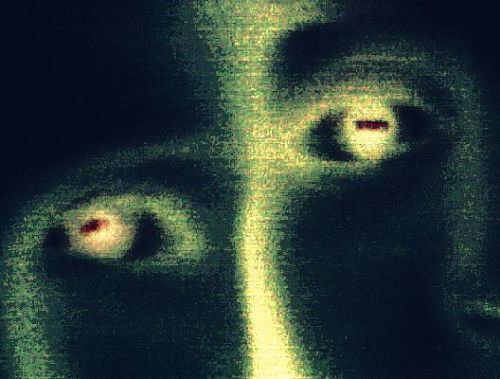“Where do you put your anger?” a precarious academic asked me poignantly the other day as we talked about the bad job market. The growth of precarious labor tends to naturalize academic hierarchy for the successful, I’ve argued (Thorkelson 2016), while conversely tending to denaturalize it — at times producing rage — for the precarious or unemployed. And in a precarious labor system, denaturalization can become a symbolic counter-reaction, a sort of allergy to domination that erupts among the reserve army of academic labor. Yet denaturalization can take so many forms. Political denunciation is one of the most straightforward, exemplified in the U.S. context by Marc Bousquet’s passionate and voluminous critiques of academic labor (2002, 2003, 2008, 2009). Private anger is another option, one that has the strategic advantage of being able to be forgotten if career circumstances later improve. Here I want to look at a third form: existential scrutiny, where academic hierarchy and academic values get questioned in a more philosophical register. As Michael Jackson observes in his notes on existential anthropology, it is in “border situations” — such as the precarious academic labor regime or the awkward thresholds of graduate education — that “we may recognize and be reconciled to the painful truth that the human world constitutes our common ground, our shared heritage, not as a place of comfortably consistent unity but as a site of contingency, difference, and struggle” (2013:11).
Does recognition actually entail reconciliation, though, as Jackson seems to imply? And is recognition of difference and struggle necessarily painful? Or can it become a subaltern pleasure?
I turn here to an ethnographic incident from my French fieldwork where academic hierarchy was subjected to a withering antiheroism. Here success was not naturalized, but rather got drowned in black comedy, introspection, and existential musings. The incident in question took place in May 2011, soon after my return to Chicago after two years in the field. I was still settling into my new apartment and wondering how to pay the rent when one of my closest friends from the field, a philosophy graduate student, commented jokingly on a Facebook post of mine about academic prestige. “If you don’t have your Rolex by age 40, you’ve wasted your life,” declared Ishmael (his preferred pseudonym). I gathered that he was being sarcastic, but I asked him what he meant in online chat, which I’ve translated here into English:
Eli: Hey!
Eli: Are you really sure it’s a bad thing to waste your life?
Ishmael: Haha
Ishmael: No
“Haha”: it was an announcement that the existential issue was bound to remain refracted, half-unserious, partly sublimated. Seriousness was going to remain playful. Heaviness was going to tread lightly. Initially, Ishmael steered our conversation into the realm of literature:
Ishmael: “I’m the living error. I’m Jean who always played at being alive, in spite of himself.” [Je suis l’erreur qui vit. Je suis Jean qui a toujours joué le vivant malgré lui.]
Ishmael: (Valere Novarina)
Eli: Who’s that?
Ishmael: A Swiss dramaturg who mostly practiced in France
Eli: k
Ishmael: Very poetic
Ishmael: Really like it

Ishmael was existentially aligning himself, I gathered, with the character Jean. Jean stood in for the view that it “isn’t necessarily a bad thing to waste your life.” But if Jean in turn was identifying himself as a “living error,” it remained obscure to me why this was a good thing. Or even, really, what the image meant. So our conversation quickly became a classic example of an ethnographer trying to get clarity from the locals, only to be bowled over by the complexity of local interpretive frameworks. I started out by disagreeing with Ishmael:
Eli: But it’s not necessarily lovely to be a living error, I think of my university, which constitutes a negative example of one
In those first months back in Chicago, I was very frustrated by the search for part-time work at my university, and it seemed plausible to me then to picture the institution as a living error. But Ishmael, a great lover of debate, was inclined to disagree. So, of course, we bickered.
Ishmael: I have a hard time imagining a university as a living being
Eli: Well, “living” in the sense that an institution functions
Ishmael: A car functions too
Ishmael: You think it’s a living being?
Our debate went on for a few minutes without getting anywhere, so I decided to abandon the subject.
Eli: In any case, dude, no need for a debate about whether institutions are “living”
Eli: It’s metaphorical
Eli: But “the living error” is just as metaphorical, right?
Ishmael: Uhh
Ishmael: No
Eli: And so according to you, error is a living species?
Ishmael: No
Eli: What is it then?
Finally, I had found a question that inspired Ishmael’s will to teach. This took us into the existential questions that, I would suggest, are often lurking at the heart of academic regimes of symbolic violence (Bourdieu 1988).
Ishmael: One can take Jean’s statement (in the animal of time) in several ways
Ishmael: 1) He is a monster (an “error of nature” or a “copy error” in genetic terms)
Ishmael: 2) He means that ultimately no NORM can describe his existence; he lays claim to the radical contingency of an individual
Ishmael: Or finally: 3) life and truth never answer to the same requirements; the expression “real life” [vraie vie] is a contradiction in terms; the existential hero is a hoax

All of these interpretations were rooted in Ishmael’s own sense of himself, I am sure. Having read Bourdieu and developed a high level of ambivalence about academic life, Ishmael always insisted that he himself was both socially produced and also “radically contingent” or even “monstrous,” a copy error in the genetic codes of academic reproduction. If we read (1) and (2) together, we could conclude that for Ishmael, only a monster could really be an individual. Accordingly, he was also skeptical of academics who pretended to be authentic heroes of their own stories. I have no doubt that Ishmael’s claim that “the existential hero is a hoax” was partly a critique of some of his own colleagues. But was it also a self-critique? What was Jean if not someone seemingly plagued by his own existential problems? What was Ishmael if not someone whose abysses of reflexivity betrayed a restless inability to read himself “reparatively” (Sedgwick 2003)?
Still, I remained confused by all these interpretations, which still seemed metaphorical to me.
Eli: Sure, I grant the plausibility of all these interpretations
Eli: But in none of these cases does “the living error” refer to a living error as such
Ishmael: Well sure it does
Eli: Or are you proposing the reading “I’m the error and it’s me who’s alive”
Eli: What’s the status of the error then?
(There was a long pause before Ishmael came back to his computer.)
Ishmael: The error, that’s me 🙂 [l’erreur c’est moi]
“The error, that’s me”: academic self-consciousness in a nutshell.
Being a living error became a way of living in academic institutions without heroism. Living without heroism is the exception to the rule, of course. John Conley (2009) has argued that precarious and degraded work should delegitimate heroism as an academic stance, but as Vita Peacock recently showed in a German case (2016), heroism and kingship persist as foundational idioms of academic power. Nevertheless, for “copy errors” like Ishmael, being a living error can provide an idiom for renegotiating relationships with academic power and to the proverbial men with their Rolexes, while also delegitimating their dominance, making it look ridiculous and hyperbolic. In the last analysis, it wasn’t a bad thing to waste your life — at least if you got to laugh at it, drowning your self-consciousness in digital laughter and emoticons. And while Jean’s living error is hard to generalize about, in a moment of precarious academic labor and intelletual unemployment, we may well find that this kind of existentialist anti-heroism comes to flourish as an underdog’s survival tactic.
Anti-heroism no less than anger are ways of being conscious of a present at a historical impasse.
As Lauren Berlant notes, in an impasse, social actors often develop “a hypervigilance that collects material that might help to clarify things, maintain one’s sea legs, and coordinate the standard melodramatic crises with those processes that have not yet found their genre of event” (2011:4). Ishmael’s ruminations, in turn, hint at an underlying process that has not yet found its genre of event, even if we may find here some clarifying material. I would venture here that thinking antiheroically is an important way of getting beyond the “standard melodramatic crises” of the job market, which are both awful and also standardized, forcing us into an impoverished alternation between anger and forgetful acquiescence, an affective epistemology that offers a bad choice between egocentrism and nihilism. Antiheroic thinking can show us how to think projectively, as Ishmael did with Jean. When Ishmael imaginatively makes Jean stand in for himself, and when Ishmael in turn stands in for us, we can shake the chains of egocentric identification that too easily reduce the academic world to what Jackson called a “place of comfortably consistent unity.” Existentially speaking, it is not and never will be that. But contra Jackson, there may be subversive pleasures in antiheroism (and in identifying with the absurd other) that take us beyond the clichéd “pain” of a life in struggle. One can only hope, extending Conley’s argument against heroism in the classroom, that this projective antiheroism can in turn foster some new politics.
Bibliography
Bourdieu, Pierre. 1988. Homo Academicus. Translated by P. Collier. Stanford: Stanford University Press.
Bousquet, Marc. 2003. The Rhetoric of “Job Market” and the Reality of the Academic Labor System. College English 66 (2):207-228.
—. 2008. How the university works: Higher education and the low-wage nation. New York: NYU Press.
—. 2002. The waste product of graduate education: Toward a dictatorship of the flexible. Social Text 20 (1):81-104.
—. 2009. We Work. Minnesota Review 71-72:145-152.
Brisset, Claire-Akiko, ed. 2009. L’Université et la recherche en colère: un mouvement social inédit. Broissieux, France: Editions Croquant.
Conley, John. 2009. Against Heroism: On politically committed academic labor. Minnesota Review 71-72:159-163.
Jackson, Michael. 2013. Lifeworlds: Essays in Existential Anthropology. Chicago: University of Chicago Press.
Peacock, Vita. 2016. Academic precarity as hierarchical dependence in the Max Planck Society. Hau: Journal of Ethnographic Theory 6 (1):95-119.
Sedgwick, Eve Kosofsky. 2003. Paranoid Reading and Reparative Reading, or, You’re so paranoid, you probably think this essay is about you. In Touching feeling: affect, pedagogy, performativity. Pp. 123-151. Durham: Duke University Press.
Thorkelson, Eli. 2016. Precarity Outside: The political unconscious of French academic labor. American Ethnologist 43 (3):475-487.
Trautmann, Alain. 2011. SLR (Sauvons la Recherche), du collectif à l’association (2004-5). Politiques des Sciences. http://pds.hypotheses.org/1296, accessed Nov. 24 2014.
Featured photo (cropped) by Leo Leung (flickr, CC BY 2.0)





I am struck by how literally “academic” this essay is. Neither the author nor his friend Ishmael seem able to imagine pursuing a career outside of the academy.
I find myself wondering if these friends are single, married, or have families. In my case, it was having a wife and child and a strongly engrained sense that a man must make a living for his family that, when I failed to get tenure, forced me to consider other, non-academic possibilities and find myself, now late in life, able to pursue academic interests as a fully self-supporting scholar.
Do I regret pursuing a PhD in anthropology? Not a bit. My life has been immensely enriched in ways unimaginable had I not set out to become a professor.